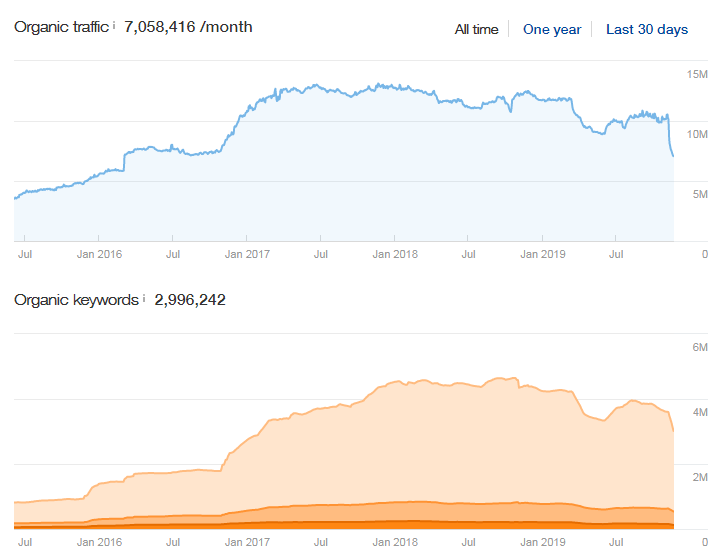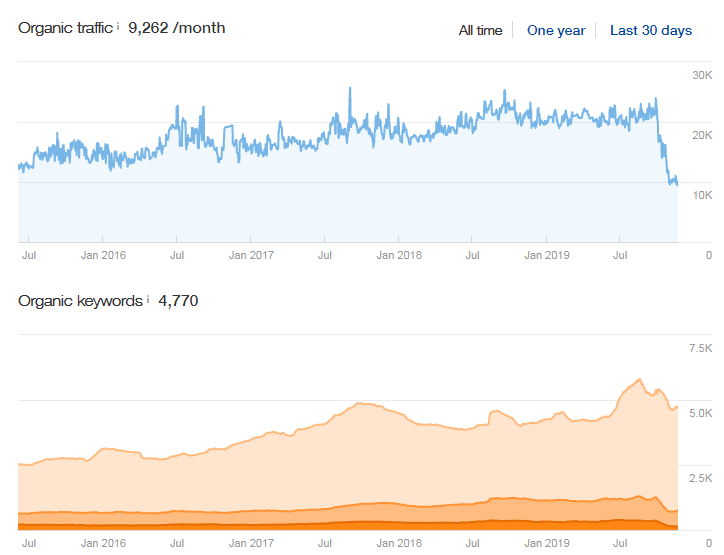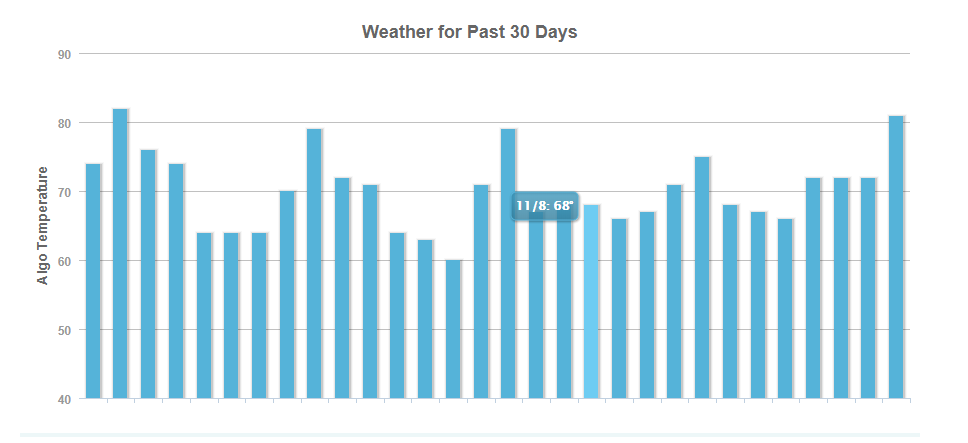
On first impressions, November 2019 appears to have been a relatively quiet month from a Google algorithm update perspective. Keyword and SERP tracking tools such as SEMrush have not been showing any particularly drastic results. However, if you dig a little deeper this is not the case. Throughout the SEO community there has been talk of far reaching, impactful core updates that have had a large impact upon rankings and traffic. There has been consistent whispers of various tremors and potential updates rumbling throughout the month. October 2019 saw plenty of significant implications with the BERT update in terms of search terms and the context in which they are used. This appears to be a continuing theme through November.
The 21st of November is throwing up scores of 5.0 and 5.6 for desktop and mobile view ports respectively throughout the United Kingdom. This appears to be consistent in various European locations such as Spain and Germany, but not the US. Perhaps a localised update for European regions or possibly even a test before being rolled out fully? Google is as quiet as ever on the matter. Despite chatter throughout the month of fluctuations, they have been typically vague, stating Google rolls out updates constantly. We will continue to monitor this current chatter and any potential implications.
November 8th 2019 Potential Google Algorithm Update
There was a lot of chatter in various SEO communities talking of major fluctuations of visibility and traffic, despite sensors showing otherwise, for the 8th of November 2019. Sensors such as Algoroo, SEMrush and Mozcast have all indicated slight variations at the most:
However, evidence would suggest the opposite of this. Tracking tools have shown large fluctuations in organic ranking keywords and therefore traffic, below showing two sites that have taken a significant hit:

This site has seen a significant drop in organic traffic and keywords beginning 8th Nov 2019

Further evidence showing an 8th Nov 2019 algorithm update with a significant drop off in traffic and keywords
Despite tools suggesting otherwise, there has clearly been an update rolled out. These two shots were taken of sites based in different niches, one based in the technology industry and the other in the leisure and culture niche. Chatter amongst the SEO community has posed interesting targets for the update. Marie Haynes has suggested that this update is based upon link quality. Tests they performed appeared to show sites that had unnatural links pointing towards them, resulting in dropped rankings and traffic. Despite the significant fluctuations that have resulted, Google is evasive as ever, stating that yes there were updates throughout the week in question but this is the same in every week of the year.
Some have asked if we had an update to Google Search last week. We did, actually several updates, just as we have several updates in any given week on a regular basis. In this thread, a reminder of when and why we give specific guidance about particular updates….
— Google SearchLiaison (@searchliaison) November 12, 2019
As the initial euphoria slowly dies down, we will be able to analyse the full implications of this Google update in more detail. As ever, engaging in white-hat SEO techniques is our recommended path to take. A lot of recent updates are focusing upon the quality of content and unnatural looking link building tactics, if you do not give Google a reason to penalise you then surely they will not?
The Fallout From Google’s October BERT Update
October 2019 saw Google releasing the BERT update. The primary intention of this is to allow Google to better understand and interpret search queries. Estimated to impact 1 in every 10 search queries, it should allow the search engine to interpret queries in the same way a human would. This should provide more relevant search results. This is in line with Googles’ increased emphasis upon a mobile world as voice searches and machine learning becomes ever more prevalent in the digital world.
You cannot optimise specifically for BERT, instead optimise for humans. The idea is to answer a users search query, providing clean, concise information that is better than a competitors information. With the growth in search result features such as featured snippets, Google’s aim is to answer as quickly as possible. Focus on the quality of your content!
Free SEO Audit







